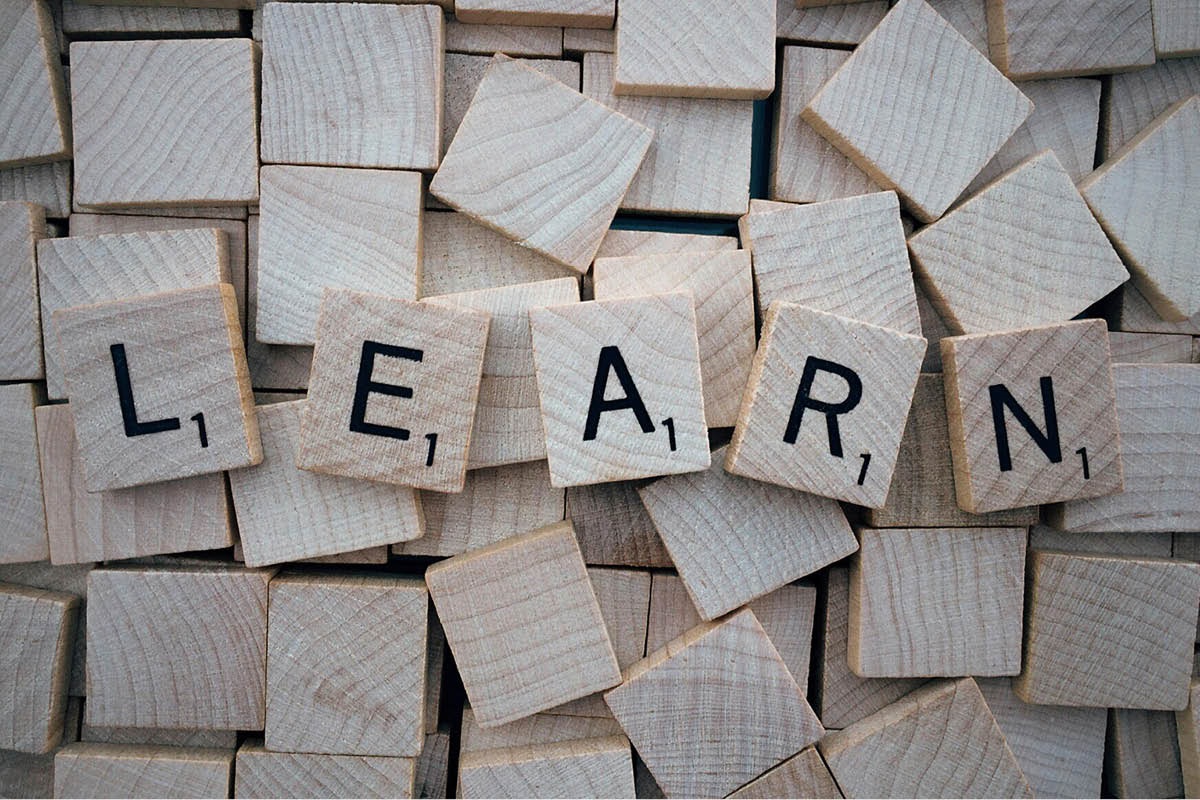
The Editing Company
Toronto, Ontario
RECENT POSTS
TEC Blog
Categories
Show All- Editing
- Grammar
- Usage
- Style
- Editor/writer
- Publishing
- Business
- Writing
- Writers support group
- Event
- Proofreading
- Copyright and permissions
- Usage
- Book reviews
- Editing new media
- Technology
- Books & libraries
- Ttc stories
- Editing & marketing
- Office happenings
- Social media & community
- Language & editing
- Social media
- Editing & marketing
- Indexing
- Book design
- Tec clients
- Guest blogger
- Creative women doing sixty
- Book clubs
- Books and reading
- Ebook technology & services
- Editing numbers
- Editing & technologies
- Opera, movies

Building Your Skillset: A Sampler of Editorial Webinars and Courses
by Lesley-Anne Longo
Published at 2024-09-23
Imagine you’re a dentist, and someone comes into your office seeking help with a bothersome tooth. You establish that the tooth needs a crown—and, luckily for your new patient, you just took part in a training course that demonstrated a new way to complete part of the procedure that makes the process less invasive and heal faster.
Or, perhaps you’re a lawyer, and a potential client comes to you with questions about a suit they would like to bring against someone who wronged them. Little do they know that you participated in a workshop last year that covered a case very similar to theirs, so you know exactly what you need to do to help them.
There are many professions out there that benefit from (or even require) continued learning and training in new techniques and as guidelines and best practices change. Editing is certainly one of those professions, as I think we can all agree that language—and how we use it, shape it, edit it, and present it—is changing every day.
So, here are some options for you if you’re looking to learn. There are full graduate certificate courses you can enroll in (one to two years to complete), as well as call-outs for specific courses that make up those programs that might interest you enough to take on their own. There are also webinars, classes, and courses that are available to take through editorial associations.
Full programs will, naturally, cover the basics of editing—developmental, copyediting, and proofreading, usually—plus some more specialized learning. Individual courses and webinars will allow for opportunities to get into some niche subjects. It all comes down to what you’re excited to learn about, whether that’s cookbook editing, literary rights and management, editing for children’s books, or something else entirely.
Most of the options below will allow you to go at your own pace, though if you select a full program, make sure that you read all the details carefully on the school program pages. Some may require you to participate as you would in any student setting. You may have assignment deadlines, scheduled check-ins, and so on.
Budgets, of course, will vary. One recorded Editors Canada webinar might cost $100, while the full Publishing Certificate program from Toronto Metropolitan University might cost up to $8000. Individual courses start at around $300 and go up from there. Only you know what price you’re comfortable paying.
It’s exciting to learn new skills and expand your knowledge base, and even more exciting to add to your editorial service offerings, so hopefully you see something below that catches your eye and sparks your passion for learning.
Traditional Post-Secondary Education Courses/Programs
Toronto Metropolitan University
Publishing Certificate
Offered through The Chang School of Continuing Education, this Publishing Certificate course can be completed on a part-time basis (one to two years is the average completion time) and fully online. This is a publishing program, so yes, you’ll learn about editing, but also about the industry as a whole, production and design, sales and marketing, and more. This program also offers some really interesting and specific electives, such as CDPB 315 – Editing Recipes and Cookbooks or CDPB 309 – Editing Books for Children and Teens. You can, of course, take just one course through The Chang School if it appeals to you as well!
The Chang School doesn’t offer a ton of elective course options as part of the certificate program, but what it does have includes some opportunities for specialized learning. I already mentioned the cookbook course, but there are also courses on audiobook publishing/production, literary rights management, and indexing for books, journals, and reports. That’s about as “niche” as you’re going to get in most offerings, so if one jumps out at you, take the leap!
George Brown College Continuing Education
Editorial Skills Program
This program offers a practical introduction to the essential skills required in the key areas of editing, and an opportunity to study all stages of the process: structural and stylistic editing, copyediting, proofreading, and production editing.
There are only seven core courses you need to complete to meet the requirements to receive a certificate for the program (all offered online). Once you have completed those courses, you can also pursue the add-on work placement course, which provides you a placement in a real work environment, giving you the opportunity to complete 45 hours of work experience.
Centennial College
Publishing – Book, Magazine and Electronic
This one-year program, when completed, will give you a graduate certificate. It actually took this program back in 2012, and the knowledge I gained in just one year of hands-on application was astounding. I also found the six-week work placement portion of the program helpful, as I received actual experience in a publishing house and had something to put on my resume!
This program is still offered in-person, but there is also an online option as well. It’s intended to cover all aspects of publishing, so there isn’t a lot of opportunity for niche specializations, but I still highly recommend it if you’ve graduated from a university program but feel like you could use some more practical experience with publishing, as I did.
Editorial Freelancers Association
The EFA offers a few options for furthering your education. One option is traditional courses, led by an instructor and with the opportunity for forum-based interaction with fellow students. You’ll never need to be at your computer at any specific hour, but you will have weekly deadlines for submitting homework assignments. Traditional courses take place over a period of four to six weeks, and currently on offer are courses like Editing Children’s Picture Books or Editing Romance.
If you’d like something a little more flexible, the EFA also provides options for self-paced courses. You’ll receive full access to your course for an entire year, and that access includes in-depth lessons, self-assessments, handouts, and plenty of additional resources. The self-paced courses also include regular live Q&A sessions with your instructor, a unique benefit. Most of the courses are pretty basic, such as Developmental Editing of Fiction: Beginning or Copyediting: Intermediate. However, there are a couple of options for more niche subjects, such as Introduction to Medical Copyediting and AMA Style, or Editing for Conscious and Inclusive Language.
Editors Canada
Editors Canada is consistently producing great webinars that you can take part in live, but it also has an amazing repository of previously recorded webinars that you can purchase to watch on your own time.
Topics range from the more basic concepts of editing to more specialized subjects, such as anti-Islamophobia editing, ergonomics for editors, freelance editing for cookbooks and recipes, worldbuilding, grant editing, and more. It’s a great mix of subjects that apply to your editing business and topics that will help you improve your practice and learn about more specialized skillsets. There are also a number of French webinars available for bilingual or French-speaking editors.
Recorded webinars are available for purchase whether you’re a member of Editors Canada or not. However, if you are a member, you can purchase recordings at a discounted price.
Many Pathways to Learning
So, whether you’re looking for a full program to create a stronger foundation for your learning or a single course or webinar to pursue an area of editing that fascinates you, you have options available to you. Growing and expanding your skillset is always a good idea to help you keep pace with the ongoing changes in our editorial practice.




